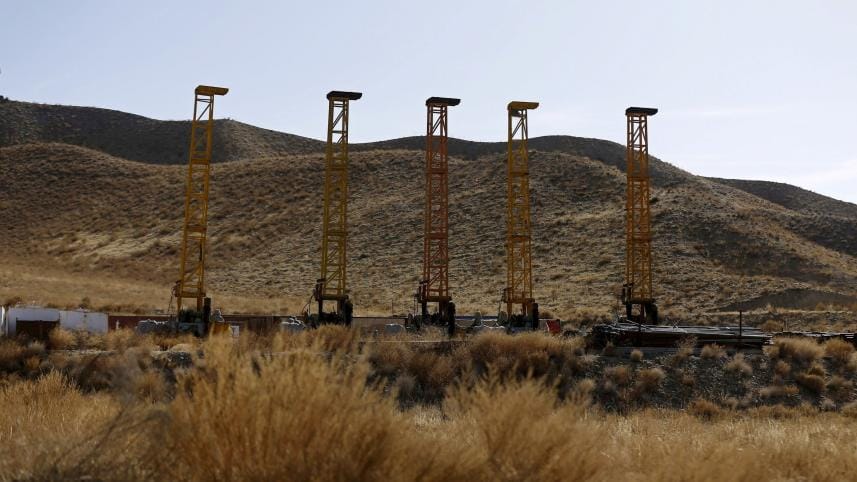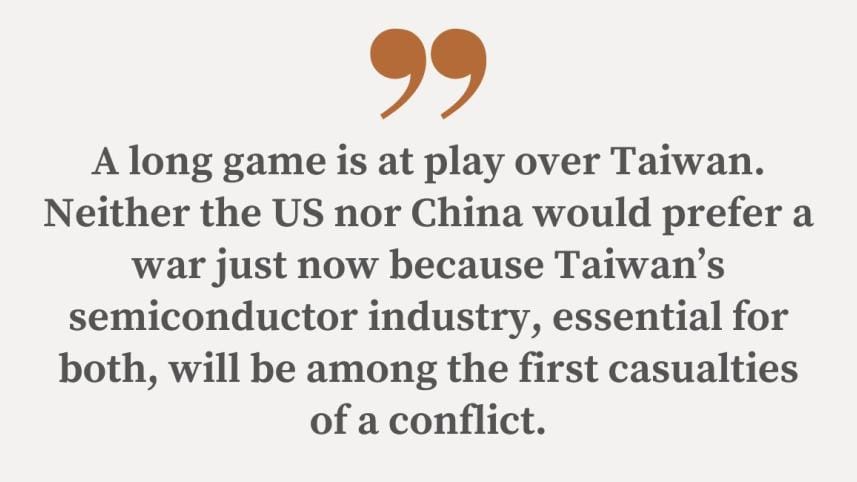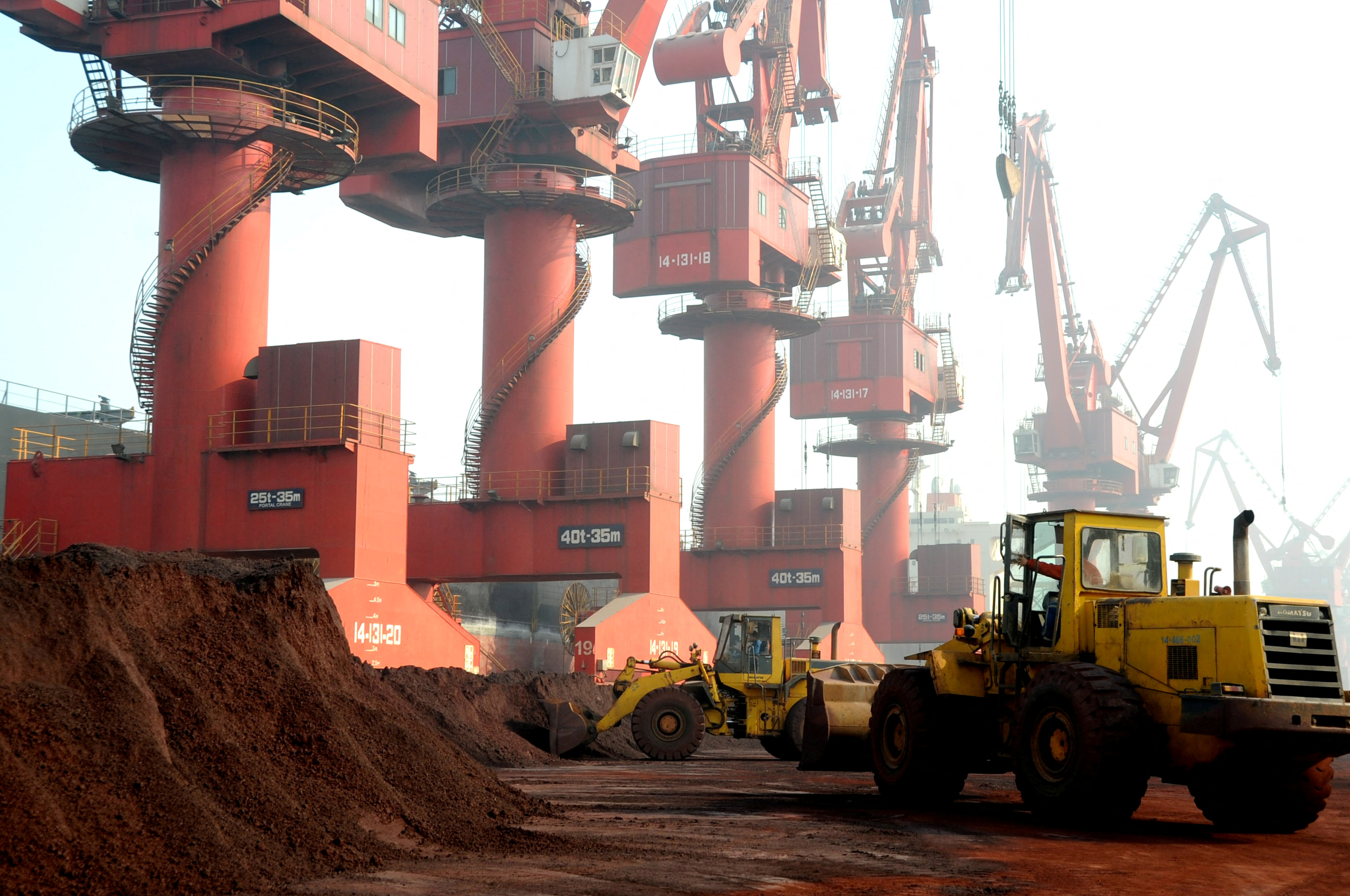China unlikely to make a rash move over Taiwan

Steve Hanke, professor of applied economics at Johns Hopkins University, makes an interesting point: no Chinese university has found a place among the world's top 20. However, in three key areas relevant to the crucial rare earth minerals, China has a strong presence.
Rare earths are those naturally occurring minerals that power everything – from mobile phones to precision-guided missiles to petroleum refining to EVs – hence driving modern economies. Hanke calls them the three Ms: 1) Mining and mineral engineering; 2) Metallurgical engineering; and 3) Materials science and engineering. Of the top 20 universities in mining and mineral engineering, almost half come from China and none from the US. On metallurgical engineering, China has a 45 percent hold and the US has 20 percent. Only in materials science and engineering does the US hold 50 percent positions, while China has 25 percent. How has this come about?
The architect of modern China, Deng Xiaoping, almost certainly had in mind the oil crisis just 19 years before, when he said in 1992, "The Middle East has oil; China has rare earths." In 1973, oil-producing countries in the Middle East brought the world economy to its knees with their control of this crucial energy source. The Chinese leadership also knew that it must control the whole value chain to gain an effective reign in the industry and pushed for supremacy in the three Ms, bringing it to where it is today. From a nobody in rare earths in the 1980s to holding 90 percent of the processed supply, anyone can tell what China is extremely good at – playing a long game.
Of course, America's myopic views helped. Until 1980, the US produced 99 percent of the world's rare earths as by-products of titanium, zircon and phosphate mining. The first ever rare earth patent went to the US in the 1950s, while China got its first in 1983. But now there are five national rare earth laboratories in China (against only one in the US), giving it numerous patents, the total number of which exceeded those of the US in 1997. Despite the changing scenario, Washington abolished the entire Bureau of Mines in 1996. It changed its regulations and relinquished expertise and intellectual properties, all of which aligned well with Beijing's long-term policy goals.
Taking a long view, Beijing launched its 10th five‐year plan for National Economic and Social Development in 2001, aiming to utilise mineral resources and upgrade traditional industries with advanced technologies. It promoted key technologies and established universities with sizeable investments in research and development (R&D) with spectacular achievements. Today, China dominates the production of lithium, natural graphite and synthetic graphite necessary for making EV batteries.
The long-game skill is perhaps ingrained in China's leadership, which it adopted for gaining the United Nations (UN) membership. In 1949, China's nationalist government in Taiwan claimed control over the whole of China. With generous Western support, it got its UN membership. China waited patiently for more than two decades, supported the pro-independence movements in Africa during the 1950s and 60s, and secured their support for the UN General Assembly Resolution 2758, which changed the UN's recognition of the government of all of China being Taipei to being Beijing.

China played the same long game in Afghanistan. After centuries of fighting heavy-handedness from Britain, Russia, and the US, Kabul is now looking at Beijing as the most favoured development partner. Beijing has been patiently waiting on the sidelines for this very moment, watching as the US was getting into a costly mess. Meanwhile, it helped Kabul in building hospitals and power stations, provided medical aid, and fostered trade relations – becoming its largest trading partner, never taking its eyes off its lucrative minerals. In 2008, Beijing took one step towards extracting these minerals when the Chinese joint venture MCC signed a 30-year deal with Kabul to mine Mes Aynak, believed to be the world's largest copper reserve. But the security situation and logistical issues forced MCC to leave in 2014. Now that the American forces have slunk away, Chinese miners have returned to a warm welcome by Kabul to revive the project.
A long game is at play over Taiwan as well. Neither the US nor China would prefer a war just now because Taiwan's semiconductor industry, essential for both, will be among the first casualties of a conflict.
Although Washington is developing its own fabrication capability by investing USD 52 billion, production will take a long lead time. Chinese plants have recently achieved a breakthrough by making 7nm semiconductors, which is still a generation behind Taiwan and South Korea's 3nm chips. However, Beijing is steadily catching up – as Apple's recent decision to buy memory chips from Hubei-based YMTC might indicate – and has far better options than a rash cross-strait invasion. Meanwhile, if Washington also becomes self-reliant on semiconductors, Taiwan's usefulness as a chip supplier might be altogether lost – although its strategic importance as the first chain of islands circling China might remain. But war is still plausible, as the 34th US president warned in 1961.
Dwight D Eisenhower said in his farewell address, "We must guard against the acquisition of unwarranted influence, whether sought or unsought, by the military-industrial complex." Two years later, Bob Dylan released his Masters of War:
"Come you masters of war
You that build the big guns
You that build the death planes
You that build all the bombs
…
Let me ask you one question
Is your money that good?"
Sadly, it is. The only hope is Beijing's patience.
Dr Sayeed Ahmed is a consulting engineer and the CEO of Bayside Analytix, a technology-focused strategy and management consulting organisation.




 For all latest news, follow The Daily Star's Google News channel.
For all latest news, follow The Daily Star's Google News channel. 
Comments